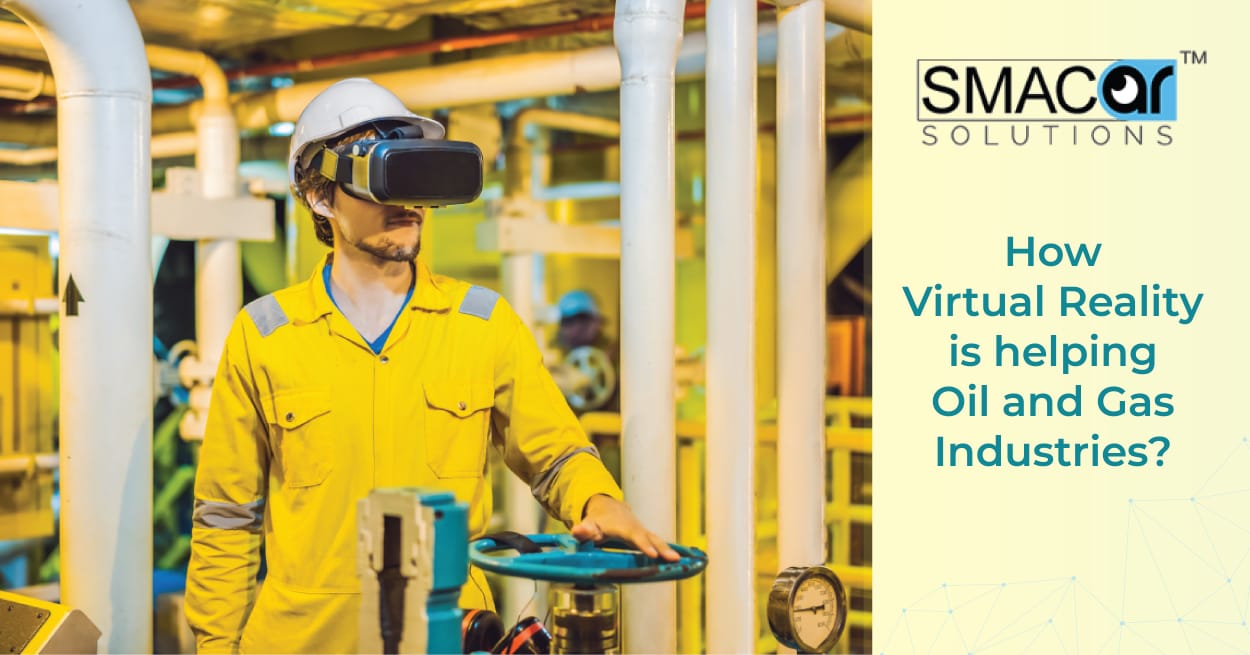How Virtual Reality is helping Oil and Gas Companies?
With the advent of new technologies and next-gen platforms offering multiple opportunities to innovate and transform the industry Oil and Gas companies are no exception. Over the years’ Oil and Gas Industries have gone through several ups and downs but the challenges for exploring and producing commercially viable hydrocarbons remain the same. Hence several prototypes utilize Virtual Reality technologies and concepts to aid Oil and Gas operations.
Virtual Reality Technologies have changed the current scenario of Oil and Gas companies and here are few major benefits:
- VR has helped these entities in reducing the number of accidents as conducting training in real environments is extremely hazardous. It has also helped them improve their decisions in a stressful situation.
- Full immersion in the dangerous situation has helped them enhance their compliance with better safety standards.
- Introduction of 360-degree video for training has led them to a better understanding of the consequences of the incorrect actions onsite.
- Virtual Reality techniques have helped them reduce the fatality rate as well as emerged as a cost-effective solution.
From organizing practical programs to train inexperienced people, Oil and Gas companies have gained a lot through VR. Therefore, the companies are on the move to identify the most innovative ways to capitalize on the benefits of Virtual Reality technologies for training and simulation in improvising and developing processes as well as products.
Below are some of leading Oil and Gas companies that have adopted Virtual Reality technologies in their day-to-day Operations:
- Chevron
Chevron is harnessing passion and innovation to create an advanced low carbon future. It is an advanced Oil and Gas company that makes use of Virtual Reality technologies in its El Segundo refinery in California. Virtual Reality has helped them in reducing their time and budget spent on the maintenance procedures.
VR gears simulate the refinery equipment and sensor data superimposed on the 3D models that enable their technicians to identify the problem and provide solutions instantly.
- BP Plc
It is a petrochemical and an oil company. It explores oil, natural gas, petroleum products, generates solar energy, and markets chemicals. Their chemicals include acetic acid, ethylene, polythene, and acrylonitrile. The company has successfully established a platform to improve the knowledge and learning of its offshore drilling teams. Virtual Reality has helped in transforming the brand’s workforce to be more well-trained for real- time challenges.
The VR-based training helps in critical conditions of the drilling areas. This helps the workers understand the critical situations in real time scenarios. Utilizing simulation facilities in Denmark, Svendborg, Texas, and Houston, BP aced in building physical conditions while drilling.
- ConocoPhillips
ConocoPhillips started utilizing Virtual Reality for making better use of communication and visualization technologies. Their virtual team evaluates real-time data associated with the visualization of downhole equipment procedures.
The entity’s Norway division has already established Onshore Drilling Centre (ODC) for operating their drilling activities in the northern sea. The ODC also includes a 3D visualization suite which helps in creating a Virtual connection to a Team of domain experts.
- Equinor
Established in 1972, Equinor is an international energy brand that has a presence in over 30 countries in the world. They are a major supplier of oil, natural gas, wind and solar power. Equinor began making use of VR tech to create 3D simulation of its offshore assets and operations. By wearing 3D glasses(or VR Headset?), geologists, geophysicists, and drilling engineers could study the minute details present in geologic structures.
They have developed a 3D simulator powered with VR technology which is known as ‘Cave’ which is meant for supporting their Oil and Gas operations. VR gears have empowered them to notice several layers of oil, gas, and water present in the reserves.
- Baker Hughes (GE)
It is a GE brand that deploys VR technology to simulate Oil and Gas facilities straight into the training rooms. Virtual Reality technologies have helped the company focus on the digital design of its types of equipments in detail.
VR technology has provided them with a high level of clarity and accuracy on their equipments before they could start working on their mechanism in the installation phase.
Conclusion:
Hence, you could see how the Oil and Gas industry has already adopted the Virtual Reality tools effectively. VR platforms could efficiently offer additional insights by offering through an immersive environment to the technicians and help them visualize and interpret.
SMACAR can be the one for you!
SMACAR could be your best partner for interactive and immersive Virtual Reality solutions. We help you with the best industry standards, cutting edge, and easy-to-use interface for several kinds of industrial needs.
We will help you build creative and inspiring business solutions powered by robust VR technologies. Contact us now – info@smacarsolutions.com

